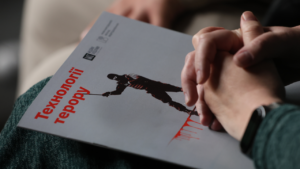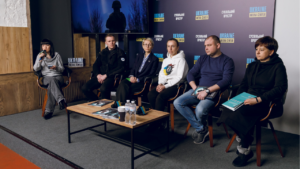The Length of Prison Sentences Increased by 300%: Russia is Prosecuting Ukrainians Harsher than Before the Full-Scale War
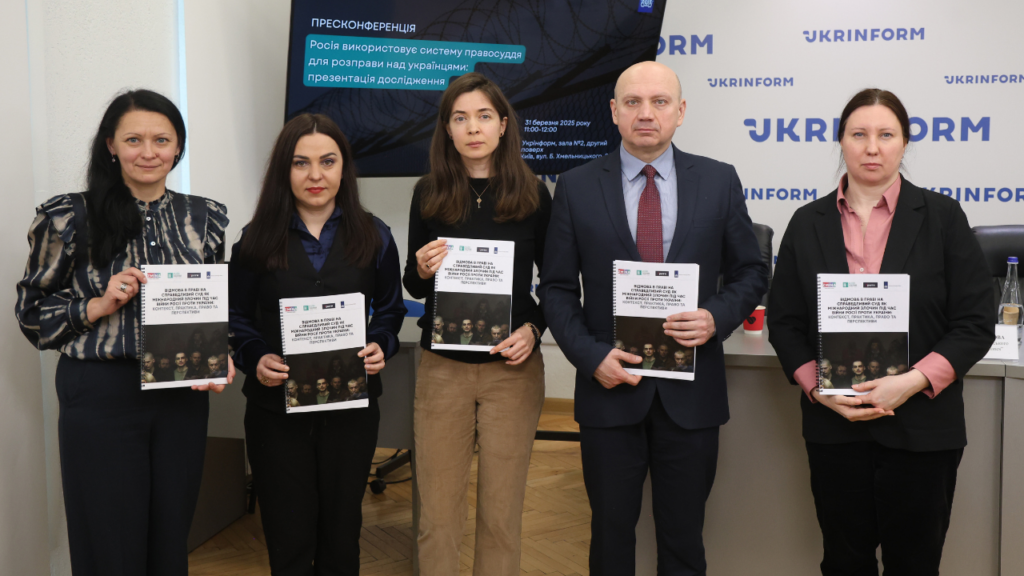
On March 31, the Ukrainian state news agency Ukrinform presented a research paper on Russia’s policy of prosecution of Ukrainian civilians and prisoners of war, which has clear signs of war crimes and crimes against humanity.
The research was conducted by the ZMINA Human Rights Center and the Media Initiative for Human Rights, in cooperation with the Graty online outlet and the NGO Crimean Process. Authors of the research paper include Iryna Marchuk, Serghei Ostaf, Daria Svyrydova, Maksym Tymochko as well as representatives of the ZMINA Human Rights Center and the Media Initiative for Human Rights.
The research paper titled Denial of the Right to a Fair Trial as an International Crime During Russia’s War Against Ukraine: Context, Practice, Law and Prospects is based on the monitoring and analysis of approximately 600 court proceedings against Ukrainian citizens in Russia and the territories it occupies. The authors conclude that harsh and unjust convictions handed down by Russian courts are not isolated miscarriages of justice, but rather the result of a large-scale and systematic government policy of criminal prosecution targeting Ukrainians – a policy that bears all the hallmarks of a crime against humanity. Specifically, experts revealed that for that purpose Russia deploys its law enforcement and judicial systems, the media, and the amended legislation.
The ZMINA Human Rights Center was responsible for the collection of data from courts operating under Russian occupation in Crimea. According to Tetiana Pechonchyk, Head of the Board, in recent years there has been a drastic increase in the number of cases brought under charges of so-called “high treason”. Thirty-five such cases were recorded in 2024 alone, whereas prior to 2021 no such prosecutions had taken place at all. These trials are conducted behind closed doors, with no external oversight or scrutiny.
“Courts in the occupied Crimea ceased to be institutions of justice long ago.” They now function as tools of repression serving the interests of the Russian occupation authorities. People are not being prosecuted for actual crimes, but rather for their pro-Ukrainian stance, for refusing to accept the occupation, and for attempts to resist it. In place of the rule of law, there is terror; in place of justice, there is the fabrication of cases and severe sentences – all designed to instill fear and silence dissent,” emphasized Tetiana Pechonchyk.
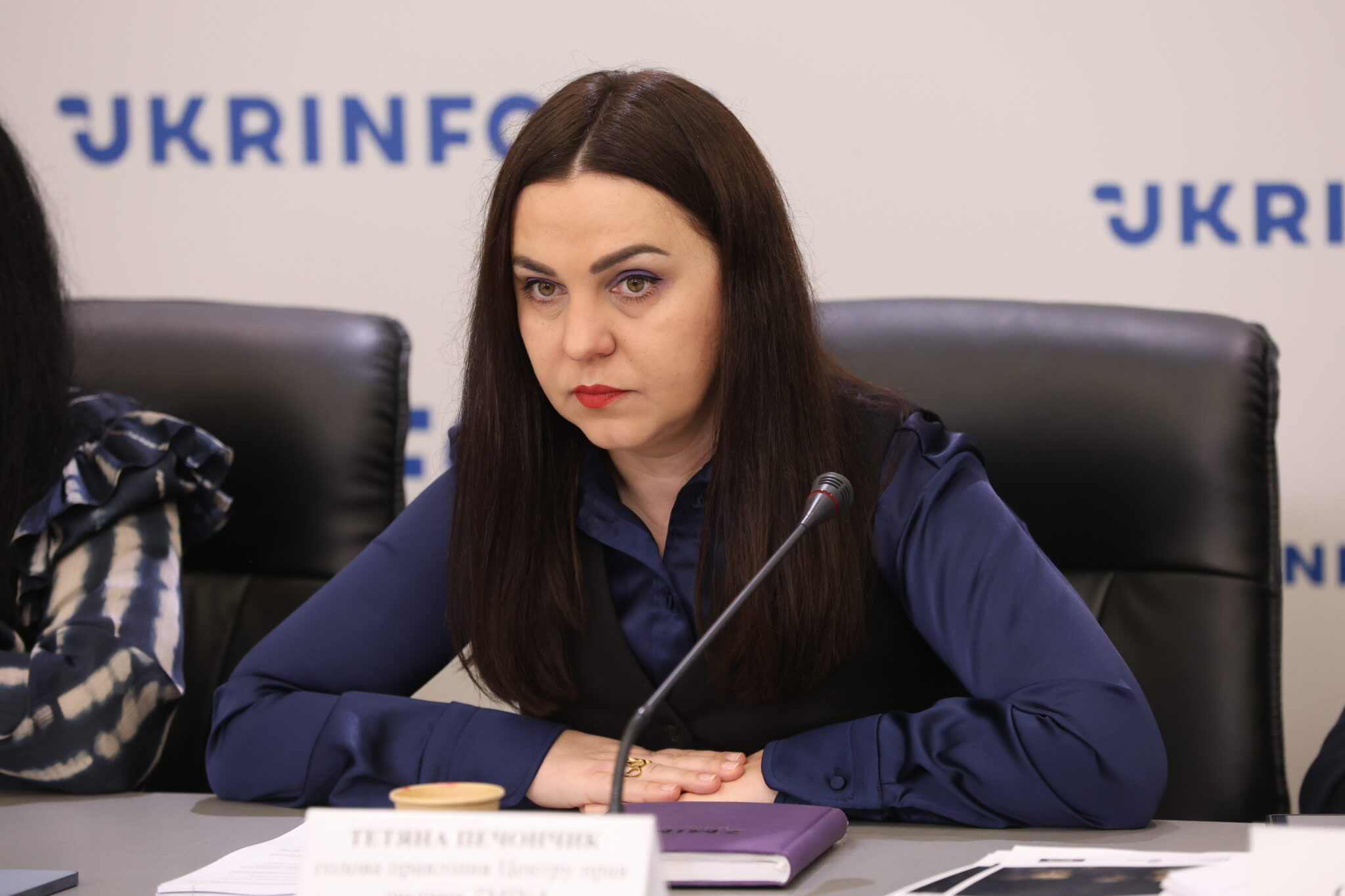
Tetiana Pechonchyk, Head of the Board of the ZMINA Human Rights Center. Photo by Victor Kovalchuk/MIHR
According to the Media Initiative for Human Rights (MIHR), as of March 2025, Russian courts are either currently hearing or have already completed proceedings in 94 cases involving Ukrainian prisoners of war, with at least 151 individuals standing trial. An additional 218 cases involving 342 prisoners of war are being heard in courts located in Russian-occupied territories. Furthermore, MIHR has documented 36 criminal proceedings against 269 Ukrainian civilian defendants being tried within Russia. Another 196 cases involving 267 civilian defendants are being heard in the occupied territories. Additionally, analysts report the prosecution of 85 prisoners of war who were detained in Russia’s Kursk region.
Tetiana Katrychenko, MIHR’s Executive Director, emphasizes that these proceedings are marked by systematic violations of human rights:
“The Russian Federation disregards the status of combatants and denies the existence of an international armed conflict in the territory of Ukraine. They are often charged with acts of terrorism. What we are seeing is a mass production of criminal cases against Ukrainian prisoners of war, where confessions are frequently extracted under pressure or coercion. Trials are conducted at an accelerated pace, resulting in sentences of extreme length. In many cases, the prisoners do not even appeal their verdicts.”
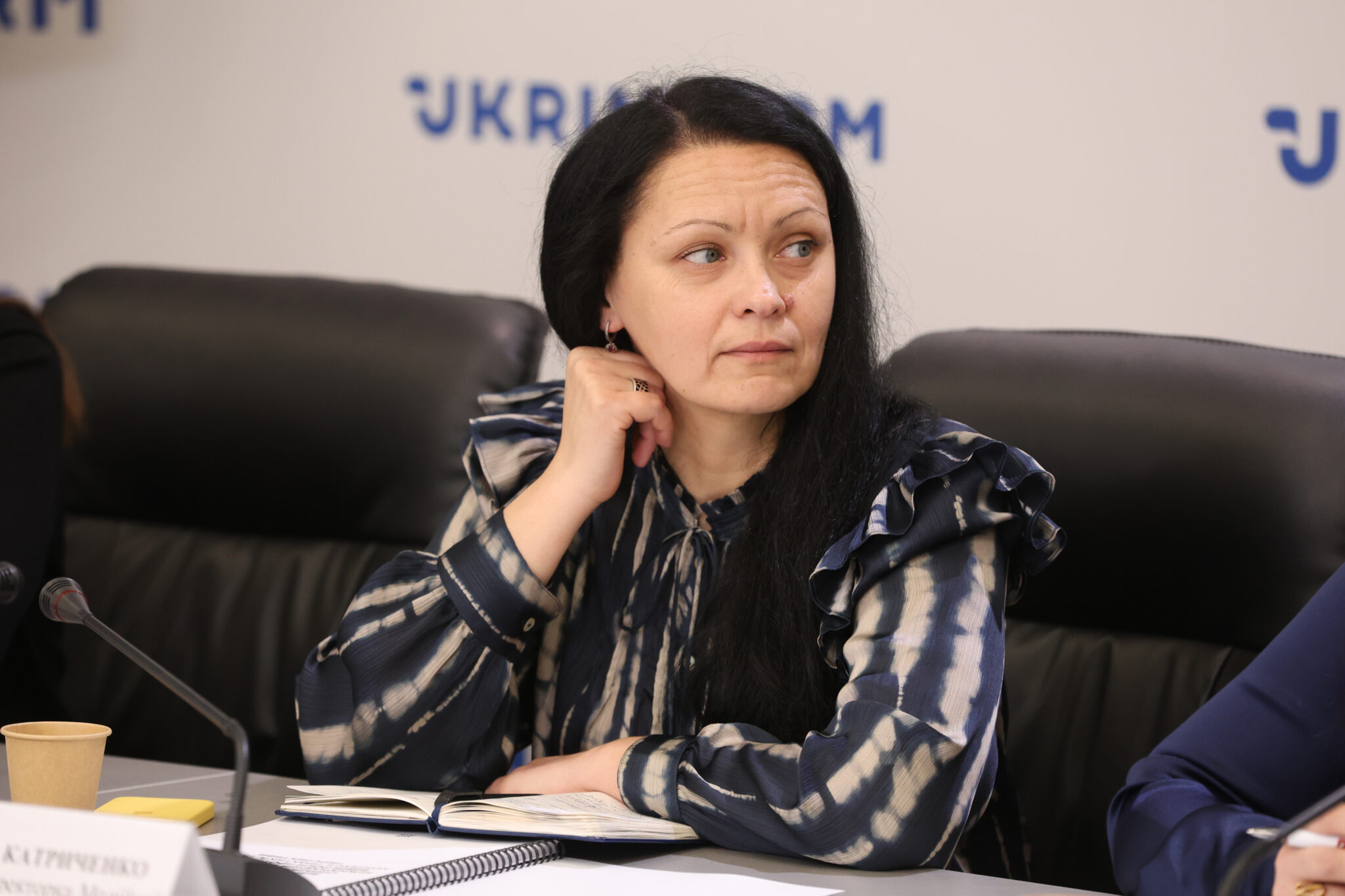
Tetiana Katrychenko, Executive Director of the Media Initiative for Human Rights. Photo by Victor Kovalchuk/MIHR
According to Tetiana Katrychenko, trials are also ongoing for approximately 75 Ukrainian citizens whose cases were initiated prior to 2022.
“We are documenting that testimonies in these cases are frequently obtained under duress and through torture. When it comes to civilians, the charges often involve accusations of ‘espionage’ or ‘extremism,” noted Tetiana Katrychenko.
According to Serghei Ostaf, Executive Director of the Resource Center for Democracy and Human Rights (Moldova), the expert team applied three scientific methodologies in their analysis, which enabled them to prove a deliberate pattern of discrimination against Ukrainians. In particular, analysts examined disparities in sentencing in cases involving Ukrainian defendants. By comparing Russian court practices for similar categories of cases before and after February 24, 2022, they identified a staggering 300% increase.
“There is a consistent judicial practice in Russia, where prior to the full-scale invasion sentences for participation in a terrorist organization typically ranged from 3 to 4 years of imprisonment. Today, those same charges result in sentences of 12 to 15 years. This discrepancy is so significant that it serves as clear evidence of discrimination. Thousands of people are being prosecuted in proceedings that systematically violate the standards of a fair trial and involve politically motivated verdicts. This provides a solid foundation to qualify such practices as the crime of persecution through the denial of the right to a fair trial,” noted Serghei Ostaf.
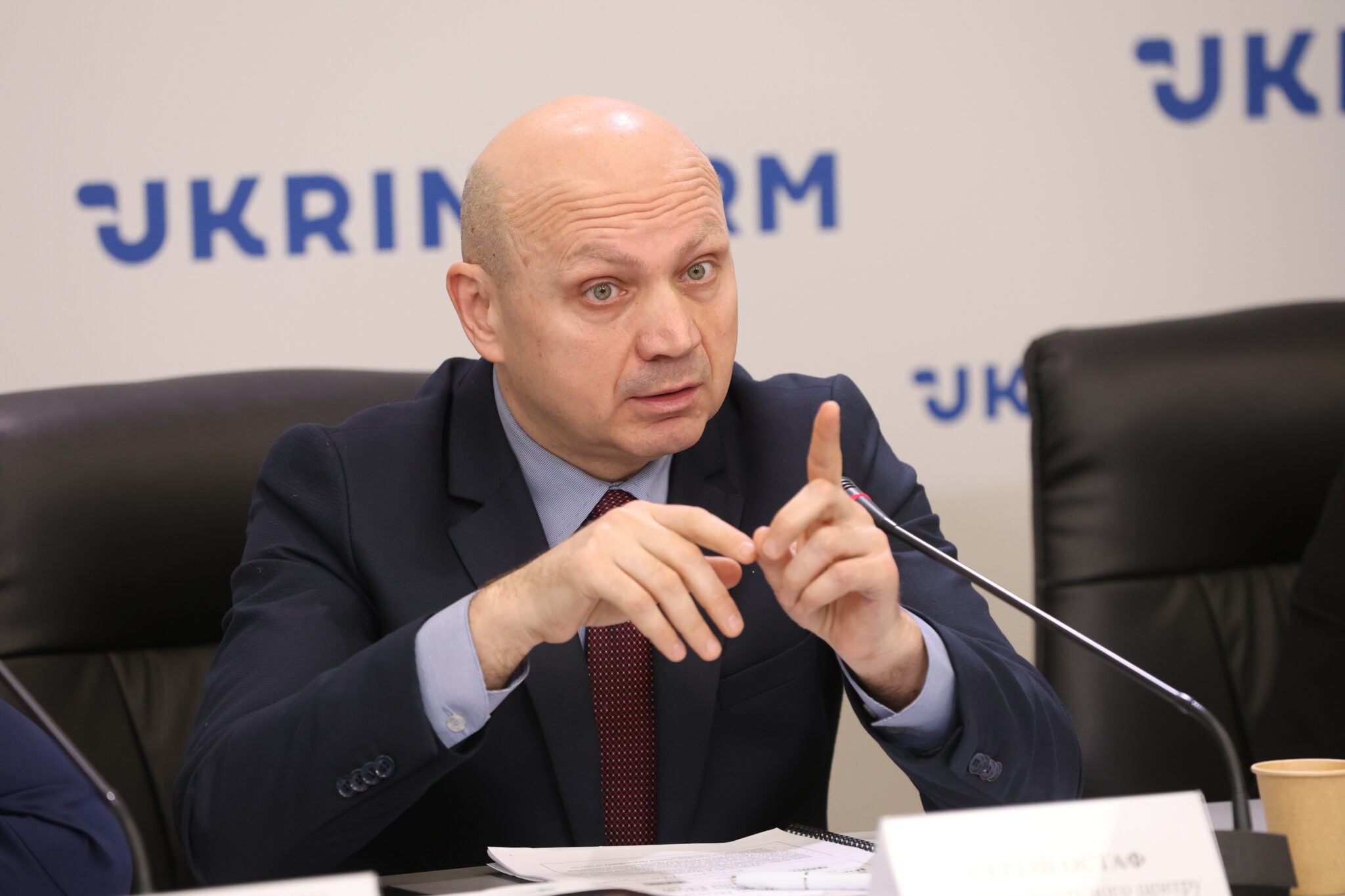
Serghei Ostaf, Executive Director of the Resource Center for Democracy and Human Rights (Moldova). Photo by Victor Kovalchuk/MIHR
Daria Svyrydova, partner at Azones law firm, emphasized that Russia’s policy of judicial prosecution bears the hallmarks of both war crimes and crimes against humanity.
The findings of our research clearly show that the large-scale and systematic denial of the right to a fair trial to Ukrainian civilians and prisoners of war in courts controlled by the Russian Federation is not merely a series of isolated violations of human rights or instances of war crimes. It represents a coordinated government policy aimed at suppressing Ukrainian resistance to occupation. It is a deliberate use of fear and persecution to control the population and to justify the Kremlin’s declared objectives in its aggression against Ukraine,” stated Daria Svyrydova.
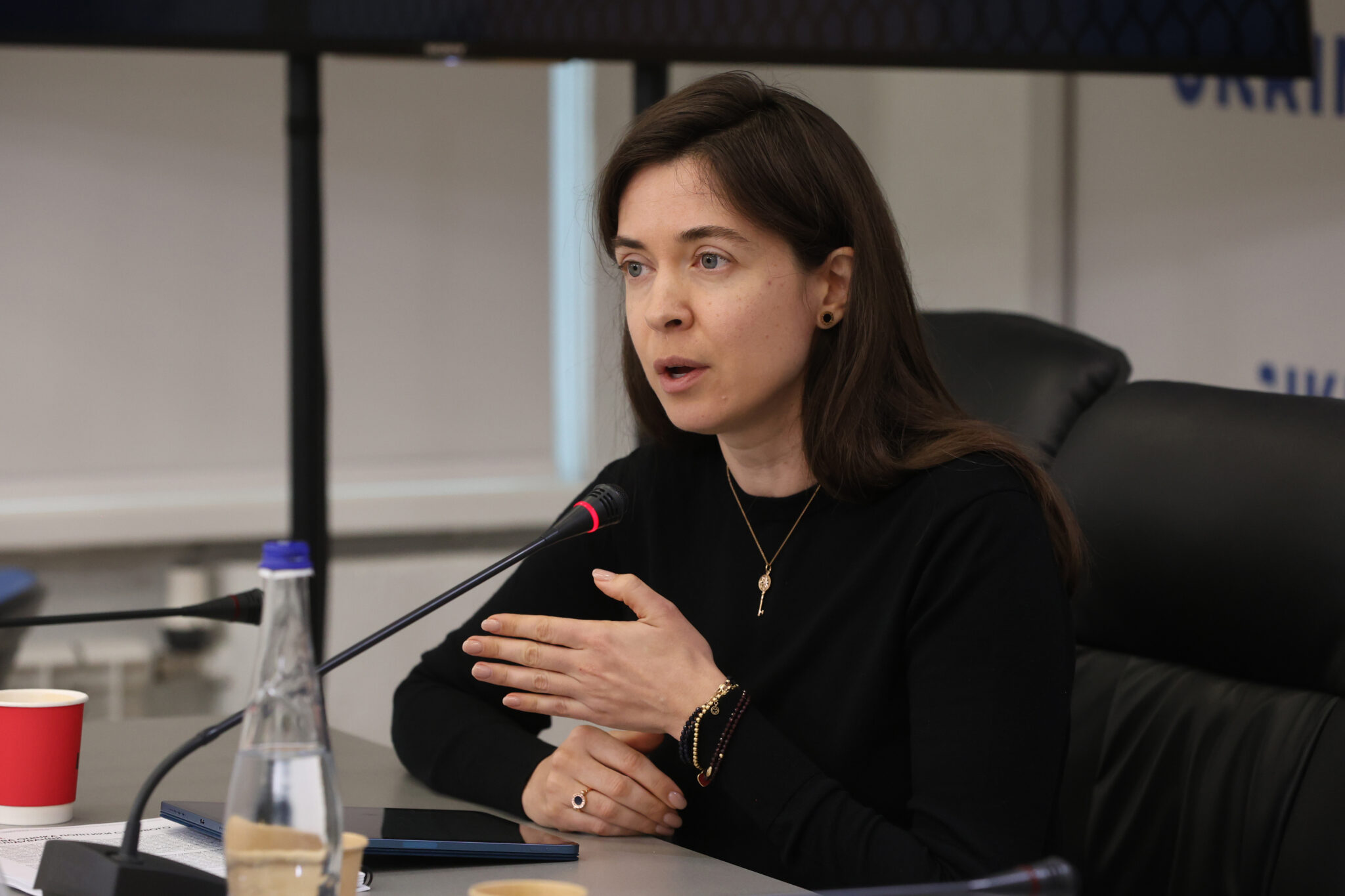
Daria Svyrydova, partner at Azones law firm. Photo by Victor Kovalchuk/MIHR
According to her estimates, the number of victims affected by this policy may range from 5,000 to 6,000 Ukrainian citizens. The full text of the analytical report is available below or via the following link.



